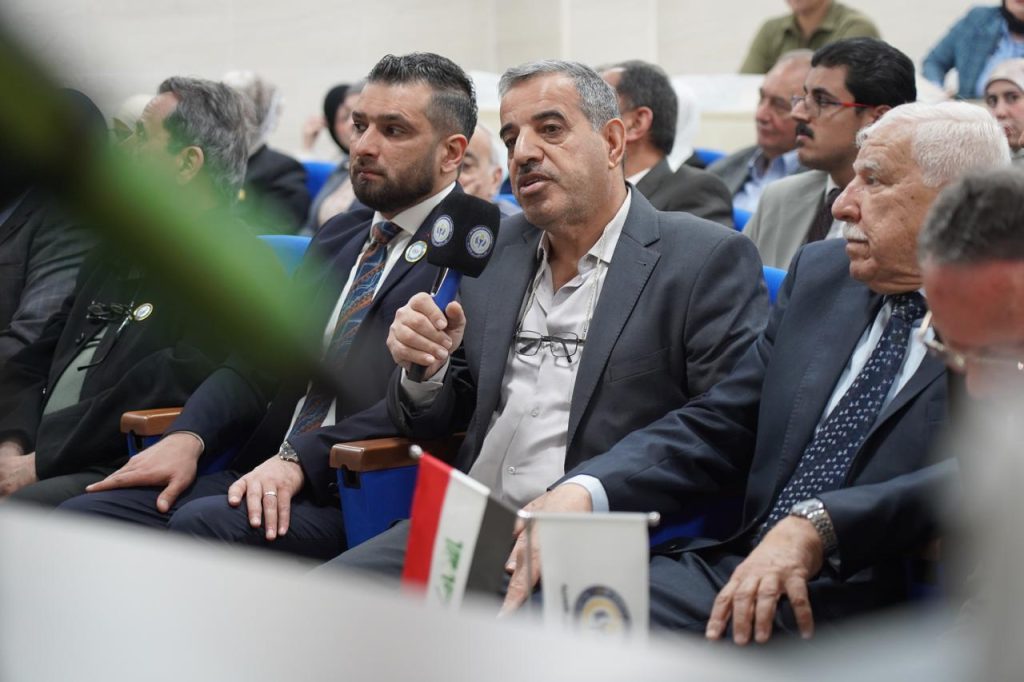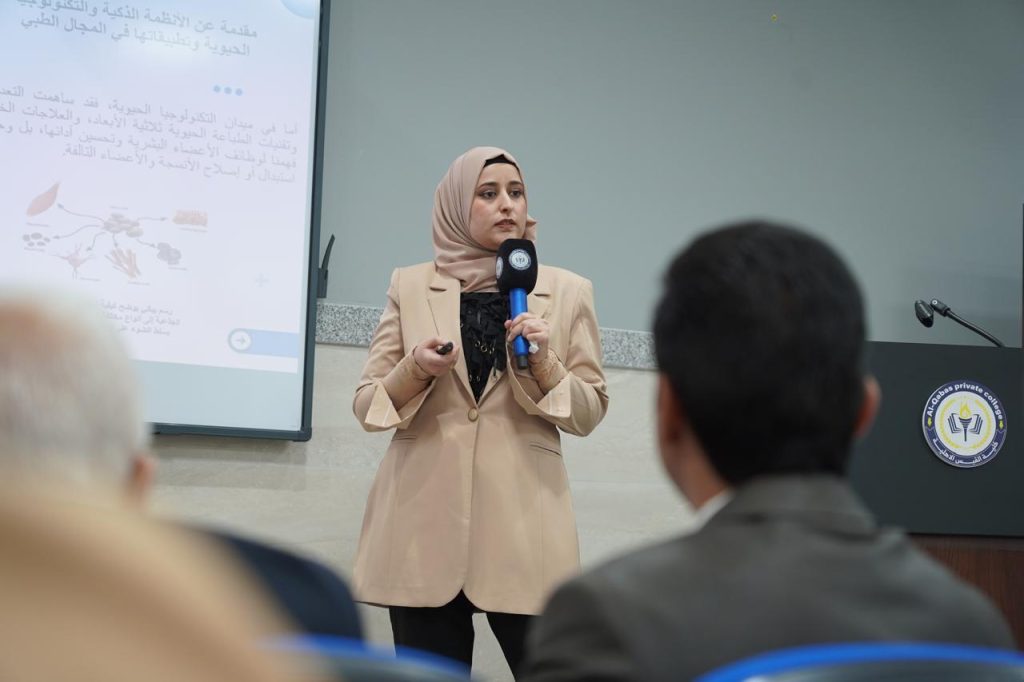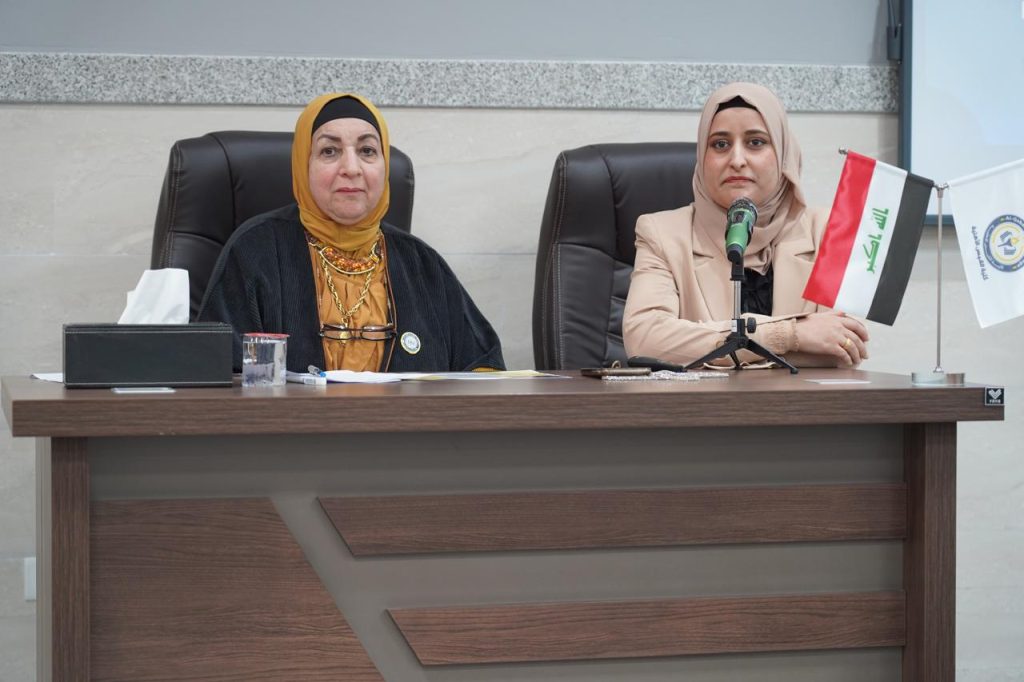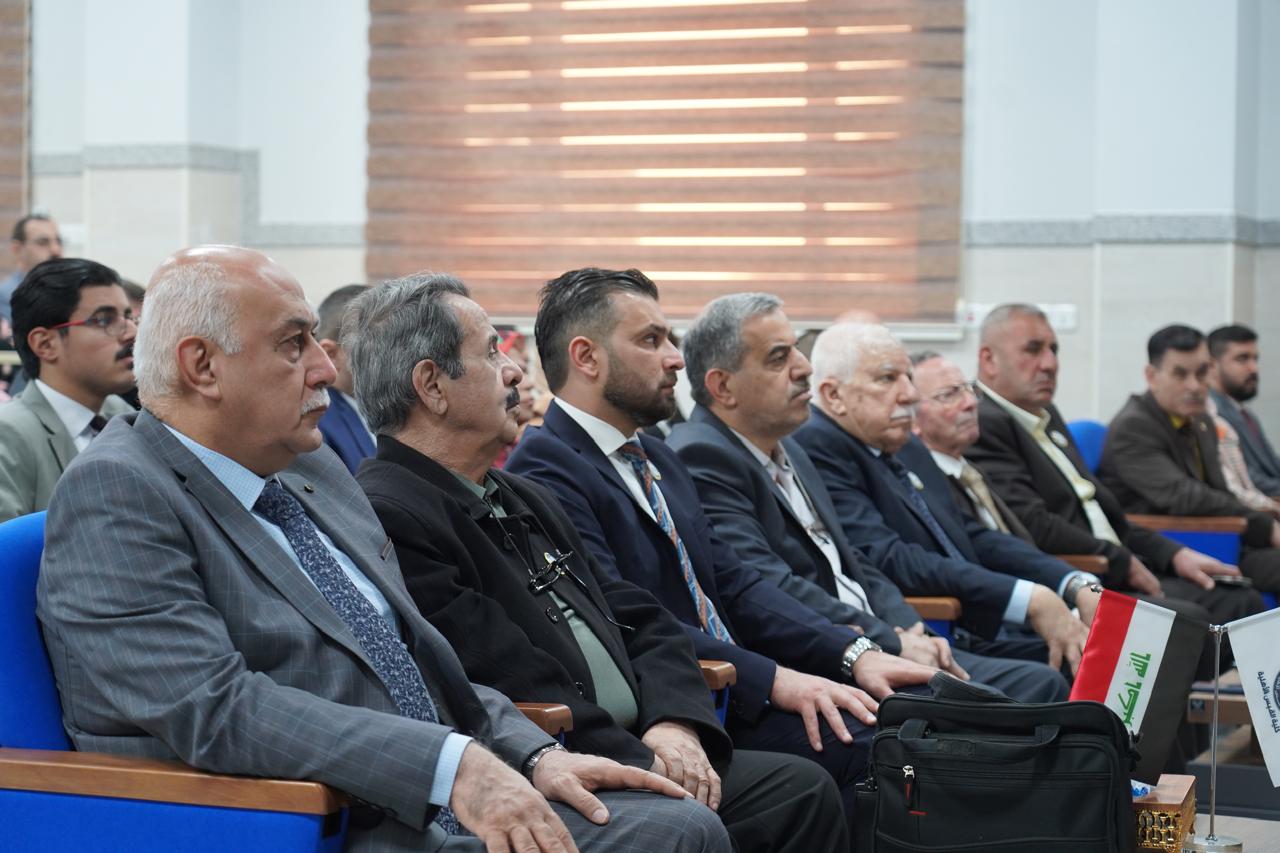On Thursday, April 17, 2025, the College of Nursing at the University of Ninevah concluded the second and final day of the scientific symposium entitled “Basic Sciences and Medical Technology: A Partnership for Better Health,” organized by the Department of Basic Nursing Sciences in collaboration with Al-Qabas Private College.
The second day’s events were hosted by Al-Qabas Private College, featuring high-quality lectures covering recent topics in the field of medical technology.
The second scientific session was chaired by Prof. Dr. Basma Ahmed Abdullah, Assistant Dean for Scientific Affairs at Al-Qabas Private College, and included a distinguished lineup of specialized scientific lectures that addressed the latest advancements in biomedical and medical technology fields. Highlights included:
• “Artificial Sweeteners: A Biochemical Perspective and Health Effects” – Presented by Prof. Dr. Raad Yahya Al-Hamdani, who discussed the health impacts of artificial sweeteners and the biochemical mechanisms involved.
• “The Relationship Between DNA Analysis of Microorganisms, the Phylogenetic Tree, and Medical Sciences” – Delivered by Dr. Israa Ghanem Hazem from the College of Science, University of Mosul, highlighting the importance of genetic analysis in understanding links between microbes and diseases.
• “Chronic Wound Care for Diabetic Foot and Bedsores Using Negative Pressure Wound Therapy (NPWT)” – A valuable lecture by Asst. Lecturer Youssef Daoud Qassem, focusing on the role of NPWT in accelerating the healing of chronic wounds.
• “Prosthetic Limb Control Using IMU and Muscle Response Reduction” – A research presentation by Dr. Zaidon Shamil Hashem, introducing an innovative project for improving prosthetic control using advanced technologies.
• “Blood Purification from Pathogens” – Delivered by Dr. Mohammed Dawaj Khalid Al-Maamari, Director of the Central Blood Bank in Mosul, discussing techniques for blood purification and their role in preventing pathogen transmission in healthcare settings.
• “Smart Systems and Biotechnology in Enhancing Human Organ Functions” – Presented by Dr. Amina Jassim Mohammed from the College of Nursing, University of Ninevah, exploring the use of AI and modern technologies to support organ function and improve healthcare quality.
• “Y Chromosome Microdeletion Detection Using PCR” – A lecture by Asst. Lecturer Khawla Jassim, discussing the role of genetic testing in identifying subtle hereditary disorders that affect reproductive and genetic health.
• “Obesity: A Growing Health Concern” – Presented by Specialist Dr. Mayada Youssef from Nineveh Health Department – Ibn Al-Atheer Teaching Hospital, examining the serious health risks of rising obesity in Iraqi society and approaches to prevention and treatment from both medical and societal perspectives.
The symposium concluded with a comprehensive discussion session, where the scientific committee presented several key recommendations, including:
1. The need to enhance cooperation between universities and healthcare institutions to keep pace with the latest scientific technologies in diagnosis and treatment.
2. The importance of supporting research that integrates artificial intelligence and biotechnology in disease diagnosis and therapy.
3. Encouraging students and researchers to engage in applied projects that serve the local community, with institutional support being essential.
4. A recommendation to update academic curricula to align with recent developments in basic sciences and medical technology.
5. The importance of organizing periodic symposiums and conferences to foster knowledge exchange and keep up with scientific advancements.
This symposium reflects the commitment of the College of Nursing – University of Ninevah to supporting contemporary research directions and linking them with medical technology frameworks, contributing to the development of healthcare services and the advancement of national scientific research.





